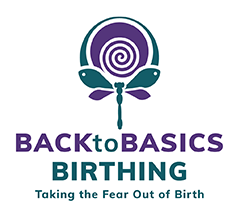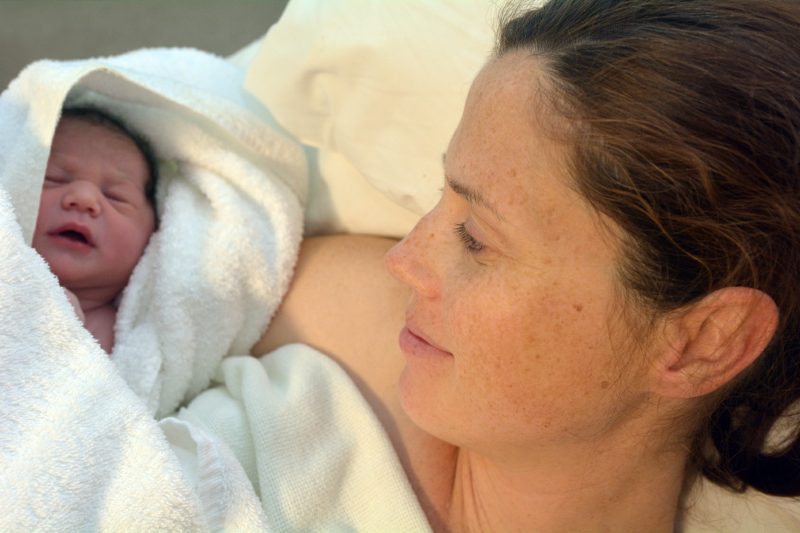What women wished they had known about the first few hours after birth!
I have been busy creating my online childbirth education program called “Back to Basics Birthing” and as part of my research I posted a request in a Facebook group asking the women in the group what were things that they wish they had known about “the first few hours after birth.”
We have so many childbirth education programs that educate and prepare women for pregnancy, labour and birth, but not too many include what happens immediately after birth, and what women should be aware of, so they don’t feel so anxious or stressed if these things do occur.

I thank the lovely mums in The Natural Parent Perth page for sharing some of these responses:
- Babies are not born with normal skin-colour straight away. They may be purple or dark red and blotchy and this will adjust after a few hours so they are pinker.
- You can arrange for the first hour after birth to be uninterrupted skin on skin bonding time. If baby is responsive and breathing without any difficulties then the measurements and assessment can be delayed for an hour or more.
- Newborn mums don’t always experience those feelings of euphoria or excitement immediately after birth and this is okay, just take time to adjust and go with what feels right for you.
- Sometimes new mums don’t feel love at first sight either – it is normal to not feel anything until you become accustomed to being a new mother.
- On the other hand some newborn mums experience such an oxytocin high that they find they are unable to sleep for hours, sometimes 24 hours or more, while everyone else around them are hibernating.
- Sometimes in an emergency situation or if there have been difficulties during birth babies need to go to the Neonatal Intensive Care Unit (NICU) and mums won’t get to hold their baby immediately or for days, and this can be upsetting.
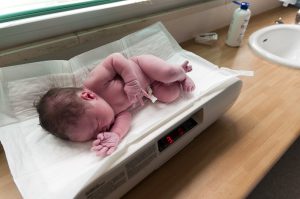
- Mums may experience shock as their body has just gone through an extreme marathon of physical, mental and emotional stress.
- Breastfeeding is a learned technique – it doesn’t always come easily to all women, so it may take a little while for you to get used to, and babies don’t always start feeding straight away. If baby doesn’t feed straight away then express so you capture all that lovely golden colostrum to give to them through a syringe or from the tip of your finger. Hold your baby skin to skin as much as possible in the early days and weeks after birth to promote the release of prolactin and oxytocin for milk production and bonding. Express frequently until your baby starts breastfeeding frequently so you increase milk volume and breastfeeding duration.
- When baby latches on to the breast and starts to suckle, mums may experience after birth pain and contractions that can be quite intense as the uterus starts to retract. Some mums even found that these after pains were more intense than their contractions through labour and have felt nauseous or started vomiting. You can request a suppository to ease these after birth pains if you find that oral medication is not effective due to vomiting.
- You may also find in some hospitals that there is no privacy or boundaries – midwives touching your breasts to show you how to feed baby and get the right latch, checking your vagina and pressing on your belly to check your uterus retracting. This can be confronting for new mums and it may be distressing, so you can ask midwives to move away and give you some space.
- You may also feel breathless as your lungs start adjusting to their full capacity.
- Lozenges are good to have after birth in case you have a sore throat from the noises you have made during birth.

- Get a good belly band to wear around your abdomen for support. You don’t have to spend a lot of money on a belly band. Usually the hospitals have “tubigrip” on hand to give to newborn mums. Don’t be shy, just ask for one. Alternatively, you could hire someone to do belly binding or learn how to support your belly with a wrap.
- Use witch hazel on your maternity pads for soothing the vaginal area and perineum.
- Make sure you get “extra-long” maternity pads for better comfort and peace of mind that you won’t have any leaking accidents.
- Wear “granny” panties as they are much more comfortable and also help to support the belly.
- If you tear you may need to be stitched up, so it is a good idea to hold baby skin to skin to keep releasing oxytocin and endorphins, and to help take your mind off what is happening down below.
- Use raw organic Manuka honey on any tearing of the perineum for faster healing and antibacterial properties.
- Another effective product for healing the perineum is Medihoney, which is a soothing cream or gel made from antibacterial Manuka honey. You can usually purchase this from your pharmacy or health food store.
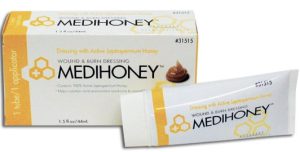
- Have some good food packed and ready to eat as some mums feel absolutely ravenous after giving birth, and sometimes there may be a wait for food at the hospital, or the food may not be what you want or like.
- Limit the amount of visitors you have at the hospital for the first 24 hours, and even the first few days, so that you have time to adjust to being a new mum, catch up on rest and establish a good breastfeeding routine before going home.
- Don’t pass your baby around to visitors for their enjoyment. Your baby has just spent the good part of 40 weeks inside a warm, dark and safe environment. If they are sleeping and settled, the last thing you want to do is disturb that. If they are already unsettled, the last thing you want is for them to feel like a “pass the parcel” – they need you to hold them and help them feel safe.
- Due to your hormones you may fall into a slump and become quite emotional on day three after birth and this is very normal, so be kind to yourself, accept help and nurturing and have someone there to support you and talk to you.
- Think about doing placenta encapsulation to help you through the ups and downs of hormonal shifts.
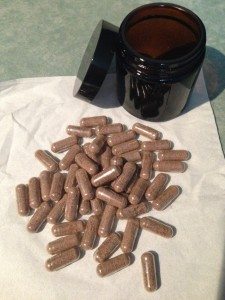
- It is normal to have blood loss after birth; however the midwives will keep an eye on how much loss you experience to ensure that you do not have a post-partum hemorrhage.
- It is important for you to have a wee soon after birth or you may need to have a catheter.
- Sometimes you may experience burning when you urinate after birth, so it is a good idea to take some Ural with you to drink. You can use coconut oil around the vagina and perineum before and after weeing to act as a barrier, which will help with any burning sensations.
- After birth you may find you sweat a lot and this is a way for your body to eliminate the extra fluid you’ve been retaining during pregnancy.
- Eating ice after birth may help you to stay hydrated.
- Don’t use soaps, deodorant or perfume for a few days after birth, as this will confuse your newborn baby as they are imprinting your smells in their neural pathways.
- Take time to let it soak in that you are now a newborn mother.
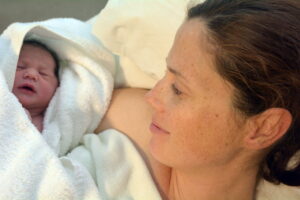
The time after birth is a huge adjustment and learning curve for the mother and her partner, and also for newborn baby as well. Your baby has spent all their life in your womb, and now they will have to learn to cope to life on the outside.
Give your baby the comfort and security that they will need by keeping them close.
Contact Vicki
If you have any questions or would just like more information please don't hesitate to get in touch by clicking the button below and filling out the contact form.
Contact Vicki
About Vicki Hobbs
My name is Vicki Hobbs and I am a Childbirth Educator (Back to Basics Birthing), Hypnobirthing Practitioner, Certified VBAC Educator, Remedial Massage Therapist specialising in Pregnancy & Postpartum Massage, Birth & Postpartum Doula, Certified Placenta Encapsulator, Hypnotherapist, Aromatherapist, Reiki Practitioner and Life Coach.
Read More
Related Posts
Here are some more posts from the "Birth" category that you may enjoy.
